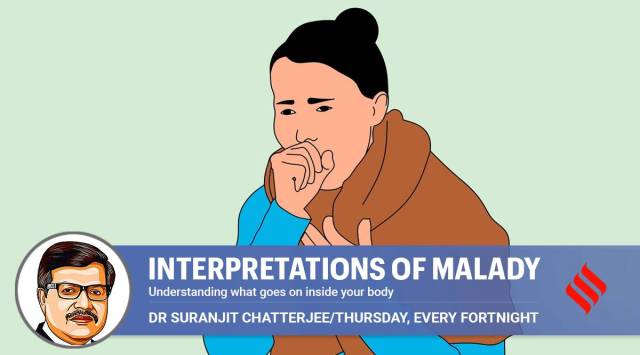Pneumonia and flu vaccine: Why you need to know about them and get a shot
By reducing the incidence of pneumonia and influenza, vaccination can help prevent the development of complications that could weaken the immune system and make patients more susceptible to other infections, says Dr Suranjit Chatterjee, Senior Consultant, Internal Medicine, Indraprastha Apollo Hospitals, Delhi
 There are significant differences between the pneumococcal vaccine (the pneumonia shot) and the flu shot. (Pic source: Pixabay)
There are significant differences between the pneumococcal vaccine (the pneumonia shot) and the flu shot. (Pic source: Pixabay)Respiratory illnesses such as pneumonia and influenza (the flu) are very common in India. The evolution of medical science has ensured that we have found ways to bring these diseases under control but they can still be of risk to vulnerable groups. The elderly, young children and those with existing medical conditions must, therefore, take preventive shots regularly in order to avoid complications. This is significant given the fact that viruses mutate and continue to attack our immune systems.
DIFFERENCES BETWEEN PNEUMONIA AND FLU SHOTS
There are significant differences between the pneumococcal vaccine (the pneumonia shot) and the flu shot. Those who have a significantly higher chance of contracting pneumococcal infections – pneumonia, meningitis and bloodstream infections – must opt for the pneumococcal vaccine.
There are primarily two varieties of pneumonia shots available in India. The pneumococcal conjugate vaccine (PCV13) and the pneumococcal polysaccharide vaccine (PPSV23) protect against a range of pneumococcal infections. For children under two years, the pneumococcal conjugate vaccine (PCV13) is recommended. At other ages, pneumococcal conjugate vaccine (PCV13) and/or pneumococcal polysaccharide vaccine (PPSV23) are taken under medical guidance to complete pneumonia vaccination.
The flu shot is the ultimate protection against influenza viruses that cause a variety of side effects such as fever, cough and body ache. Since the strains of influenza viruses are likely to vary year on year, the flu shot is updated annually to combat these newly-seen strains. Hence, it is important for patients to get a flu shot every year.
WHAT GUIDELINES SAY
The National Technical Advisory Group on Immunisation (NTAGI) recommends that all those below five years of age and above 60 receive the pneumococcal vaccine mandatorily. Those in between, having severe medical conditions, must also get the vaccine.
Unless mentioned otherwise, it is recommended that everyone above the age of six months gets an annual flu shot. It is always best to consult a doctor before receiving any vaccination, especially for those at high risk.
These vaccines not only help the body fight against specific types of pathogens, they have larger secondary effects as well on other viral infections. This is because these vaccines can help reduce the overall burden of respiratory illnesses in the population, which in turn can help prevent the spread of other viruses such as COVID-19.
HOW VACCINES PREVENT LUNG COMPLICATIONS
When the lungs are infected, the body’s immune system launches a response to fight the infection. However, this response can also cause damage to lung tissue, leading to complications such as pneumonia and acute respiratory distress syndrome (ARDS).
By reducing the incidence of pneumonia and influenza, vaccination can help prevent the development of disease-related complications that could weaken the immune system and make patients more susceptible to other infections. For example, if someone contracts influenza and develops pneumonia as a complication, their immune system may be weakened, making them more vulnerable to other respiratory pathogens such as the coronavirus.
Furthermore, the burden of respiratory illnesses can also have a broader impact on public health. During a respiratory illness outbreak, hospitals and healthcare systems can become overwhelmed, making it harder for them to respond to other public health emergencies such as COVID-19. By reducing the number of patients with pneumonia and influenza, vaccination can help ease the burden on healthcare systems and enable them to better respond to other viral infections.
In summary, although pneumonia and flu shots are designed to protect against specific pathogens, they can have broader benefits for public health by reducing the overall burden of respiratory illnesses and preventing complications that could weaken the immune system.
So, make sure you consult your doctor and get your shots today if you have to!



- 01
- 02
- 03
- 04
- 05




























